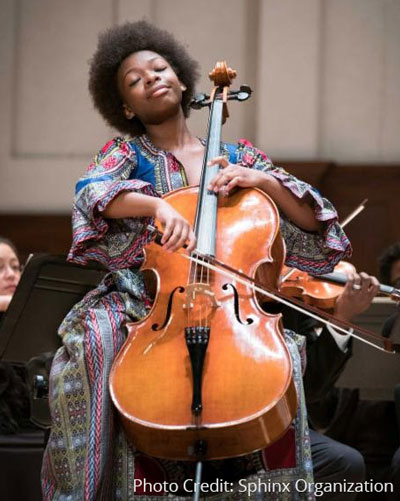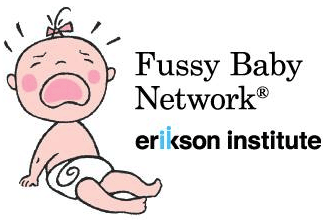Innovative Model Programs
We fund the development and replication of innovative model programs that address gaps or unmet needs in key fields and show promise for sustainable adaptation across a wide range of settings. These programs are grounded in research, science and best practice to make a lasting difference in the long-term well-being of children, families and communities. Some examples.
Empowering Diverse Musicians for the future
 The Sphinx Performance Academy (SPA), begun in 2004 in Detroit, is an intensive summer music education program serving aspiring Black and Latino students aged 12 to 17 who are pursuing classical music studies, but have limited resources and access to consistent, quality training. In 2010 when SPA sought to expand to a second location in Chicago, the Foundation recognized an opportunity to replicate a proven, innovative program and support the vision of Sphinx’s dynamic leadership. This full scholarship program has no formal tuition or room and board expenses and has served more than 400 urban youth since its founding.
The Sphinx Performance Academy (SPA), begun in 2004 in Detroit, is an intensive summer music education program serving aspiring Black and Latino students aged 12 to 17 who are pursuing classical music studies, but have limited resources and access to consistent, quality training. In 2010 when SPA sought to expand to a second location in Chicago, the Foundation recognized an opportunity to replicate a proven, innovative program and support the vision of Sphinx’s dynamic leadership. This full scholarship program has no formal tuition or room and board expenses and has served more than 400 urban youth since its founding.
During their time at SPA, students engage in daily chamber music coaching, multiple individual lessons per week, as well as daily monitored practice sessions. Each student in the program also participates in public performances including recitals, open lessons and master classes. Renowned musicians visit the program each summer to lend their expertise through master classes, workshops and guest lectures. The program has featured guest master classes in music of the Renaissance and Baroque eras, instrument care and performance classes by such renowned musicians as Elmar Oliveira, the only American violinist ever to win first place in the prestigious International Tchaikovsky Competition.
The Sphinx Performance Academy is one of many programs of the Detroit-based Sphinx Organization, a national organization dedicated to transforming lives through the power of diversity in the arts. The organization was founded by Aaron Dworkin, whose life experiences as a young, black violinist acutely aware of the lack of diversity both on the stage and in the audience of concert halls informed the organization’s mission and purpose. Led by Afa S. Dworkin, its President and Artistic Director, Sphinx programs reach more than 100,000 students and live and broadcast audiences of exceeding 2 million annually.
helping new parents and families thrive:
the fussy baby network
Parents and caregivers throughout the country and around the world know that a very fussy baby can be one of the most frustrating and scary parts of having a newborn. One in five babies struggle with excessive crying and fussing caused by feeding and sleeping complications in the first year of life. Infant crying is associated with increased risk for a variety of challenges: family stress, maternal depression, parent-infant relationship distress, child abuse and developmental, behavioral and learning problems.
 The Fussy Baby Network, led by Erikson Institute, helps families that experience excessive crying and fussiness by fostering healthy and secure attachments and building family resiliency, which reduces chances for abuse and neglect. Started in 2003 with a grant from the Irving Harris Foundation and the Doris Duke Charitable Foundation, the Fussy Baby Network began as a prevention home visiting program for families across the income spectrum who were struggling with their infant’s crying, sleeping or feeding. The program provided support to families through warm-line telephone support, home visits, parent groups and a Fussy Baby Clinic in association with the University of Chicago Department of Behavioral and Developmental Pediatrics, also a Foundation grantee. The Foundation worked closely with Erikson’s Linda Gilkerson, the developer of the Fussy Baby model, to support the initial replication of the Fussy Baby Network to sites within the Harris Foundation’s Professional Development Network, and to codify its approach into the FAN (Facilitating Attuned Interactions), which teaches professionals across disciplines to track, regulate, understand and use their interactions with parents to help them better interact with and connect to their infants.
The Fussy Baby Network, led by Erikson Institute, helps families that experience excessive crying and fussiness by fostering healthy and secure attachments and building family resiliency, which reduces chances for abuse and neglect. Started in 2003 with a grant from the Irving Harris Foundation and the Doris Duke Charitable Foundation, the Fussy Baby Network began as a prevention home visiting program for families across the income spectrum who were struggling with their infant’s crying, sleeping or feeding. The program provided support to families through warm-line telephone support, home visits, parent groups and a Fussy Baby Clinic in association with the University of Chicago Department of Behavioral and Developmental Pediatrics, also a Foundation grantee. The Foundation worked closely with Erikson’s Linda Gilkerson, the developer of the Fussy Baby model, to support the initial replication of the Fussy Baby Network to sites within the Harris Foundation’s Professional Development Network, and to codify its approach into the FAN (Facilitating Attuned Interactions), which teaches professionals across disciplines to track, regulate, understand and use their interactions with parents to help them better interact with and connect to their infants.
In addition, the Foundation helped develop and support a long-term sustainability and scaling model for the Fussy Baby Network that embedded its principles and model into existing evidence-based home visiting models like Healthy Families America and Healthy Steps. Partners in more than 12 states, Israel and New Zealand have integrated the approach into their work, helping families have a strong start in the earliest days of their children’s lives. An ongoing Maternal, Infant and Early Childhood Home Visiting (MIECHV) Program-funded randomized controlled trial will help to solidify the evidence base for the model and further strengthen its capacity to be replicated at scale.